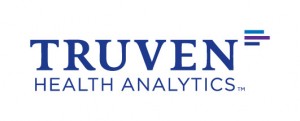Truven Health Study Finds 20 Percent of Benefits Plans to Trigger ‘Cadillac’ Tax by 2020

Beginning in 2018, the ACA requires employers to pay a 40 percent tax on the net cost of high-cost health plans. Plans with costs that total more than $10,200 for employee only coverage and $27,500 for family coverage will be subject to this penalty, the so-called “Cadillac” tax.
According to the Truven Health study, 15 percent of active employee plans are projected to incur the tax upon its activation in 2018, a rate that is expected to increase to 19 percent by 2020. Truven Health researchers estimate the tax would result in a cost increase of up to $480 per employee per year (PEPY) for plans expected to incur the tax.
“It’s critical to effective planning for budgeting, collective bargaining and benefit strategy that employers begin now to gain a solid understanding of which plans are likely to incur the tax and when each plan’s costs may be likely to cross the excise thresholds,” said Chris Justice, senior director of practice leadership at Truven. “By implementing a combination of benefit plan changes, premium contributions, and health risk interventions, you can mitigate the impact of this new tax in 2018 and beyond.”
The study also finds that early retiree plans are projected to incur tax at a much higher rate than active employee plans. Truven researchers found that 81 percent of early retiree plans for U.S. employers are likely to incur the “Cadillac” tax, and this rate is projected to increase to 84 percent by 2020. That would result in an annual per employee per year (PEPY) tax amount of $1,069, or 6.8 percent of total PEPY costs for plans incurring the tax.

